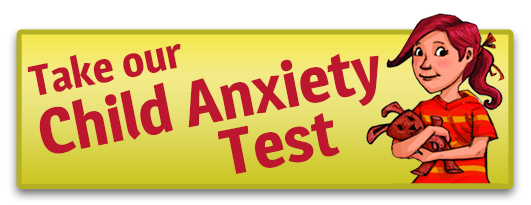The main symptoms for social anxiety are as follows:
1. Intense fear about a social setting(s) where there is the possibility that other people will be watching carefully and likely have an opinion or evaluate them. (This could be a situation like having a conversation, meeting new people, playing a sport, eating with others, or speaking in class.)
2. For kids the anxiety has to be around peers. If it is only around adults then it is probably just shyness or something else.
3. The person fears that she or he will act in some way or appear anxious so that other people will have an intensely negative opinion of them.
4. On at least one of the following, an anxious child thinks that the negative opinion held by others will result in their being:
a. Shamed, embarrassed or humiliated
b. Rejected, seen as a failure, or proven inadequate
c. Seen as offensive, irritating or a source of anger
5. Situations that trigger the fear are either avoided or endured with intense anxiety. For kids it may come out as a melt down (tantrum), freezing up, clinging to a parent, shrinking back or away and/or not speaking.
6. The intense reaction is nearly always present in these situations and typically has persisted for at least 4-6 months.
7. The fear is WAY out of proportion to the actual situation.
Specific Symptoms on Social Anxiety
Because kids cannot always describe why or how they are feeling, let’s consider some more specific symptoms that might be indicators of this fear. This is a relatively long list and your child may only have a few of these symptoms. Many of these can apply to other situations and problems and don’t necessarily indicate social anxiety. Some kids are just shy and once they “warm up” or “fit in” they do fine and probably don’t have an anxiety disorder. Here are some things to watch for:
Physical Symptoms
- Your child reports or you observe they feel dizzy, worry they might faint, excessively sweats, face or skin flushes, gets stomachaches, and/or has trouble when speaking (stutter, mumble, talk too fast, jittery, “tongue-tied”, forgets what they were saying, etc.)
- Feels clumsy, stiff or loses some degree of coordination. Worries they will trip, drop something or moves somewhat robotically.
- Tears up when anxious in social settings (not necessarily crying)
Symptoms related to Performing
- Writing or drawing while someone is watching.
- Hate to give presentations or speak in front of group.
- Avoid performance situations like playing sports especially when they are clearly the center of attention like being up to bat. Prefers to be in the background
- Hates when a parent draws attention to them
- Won’t ask a question in class or other public setting
- Feels performance pressure during tests
- High anxiety when performance situation is timed
Symptoms related to talking and interacting
- Does your child struggle with starting or keeping a conversation going? Can’t make small talk or chitchat.
- When speaking they use very few words and may leave out anything that would keep the conversation going.
- Resists meeting new people and refuses if you suggest they go play or speak with someone. Hates forced introductions.
- Fails to respond when other children make overtures toward them.
- Resists talking on the phone or calling someone they don’t know really well
- Won’t speak or seems to freeze in situations where they need to say something.
- Struggle with disagreeing, having to give an opinion or saying “no” to someone they don’t know well.
Symptoms that are Non-Verbal (body language)
- Have you noticed your child is very unexpressive or his or her face is “neutral” in social settings?
- Does your child have trouble making and keeping eye contact?
- Tries to be invisible or body posture conveys detachment
Symptoms related to action or behaviors
- Resists participating in groups
- Doesn’t want to go to parties
- Resists eating or drinking in public
- (Boys only) Won’t use urinal if others are in bathroom
- Hate to sit in the front or middle of a room
- Uncomfortable walking in front of other people, particularly if they are being watched from behind
- Anxious about entering a room when others are already seated and others would see him or her
- Avoids wearing anything that might draw attention
- Resists returning something at a store, talking to a clerk, talking to a server, etc.
- Peers might say he or she is trying to hard or applying pressure to be liked.
Symptoms related to Self-esteem
- Frequently reports things like “no one likes me” or “no one wants to play with me” and that is probably not the case
- Thinks others are high status but sees self as low status
- Makes self critical remarks like “I’m stupid, I’m worthless”
- Is overly sensitive to criticism and preoccupied with what other think of them

